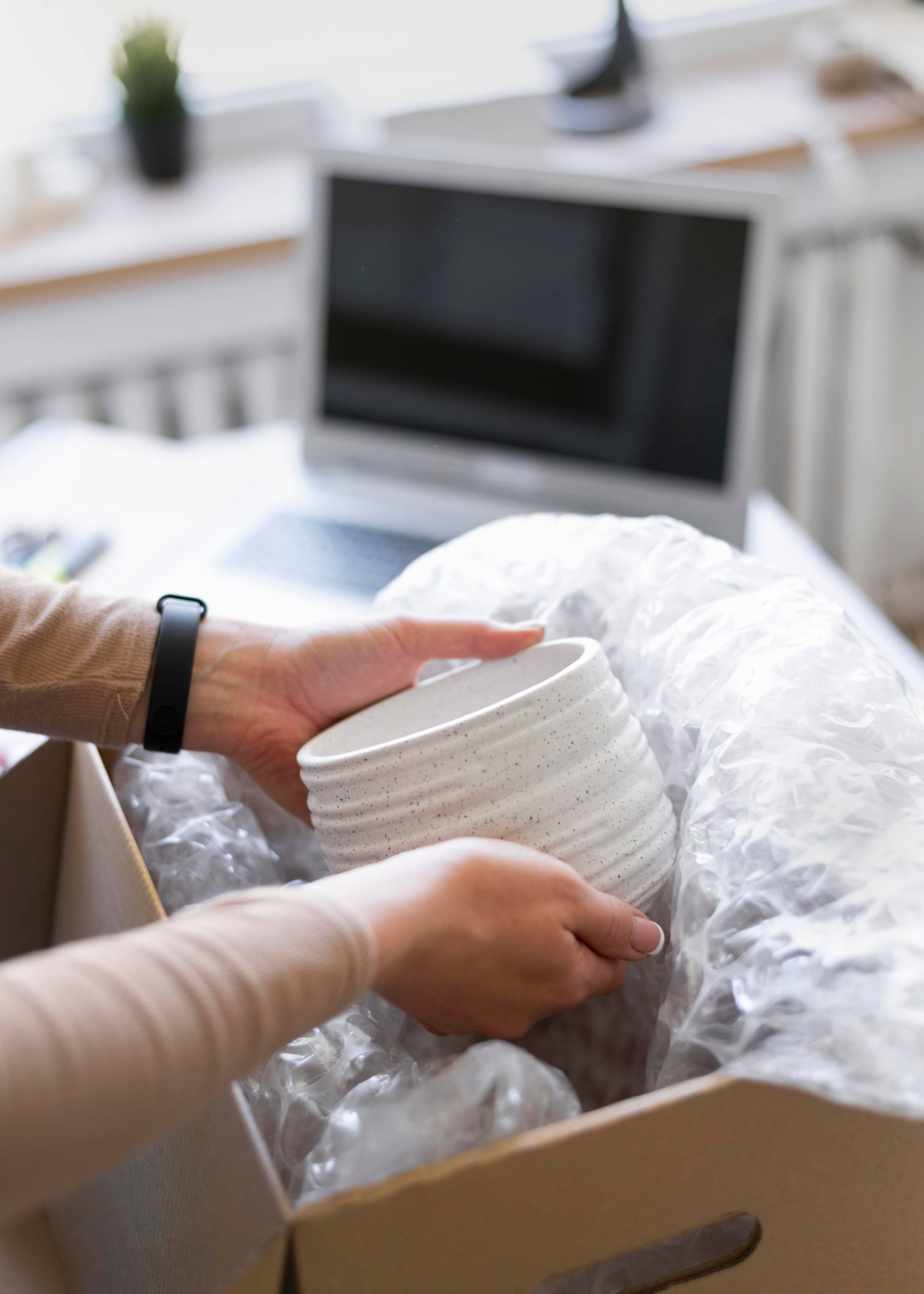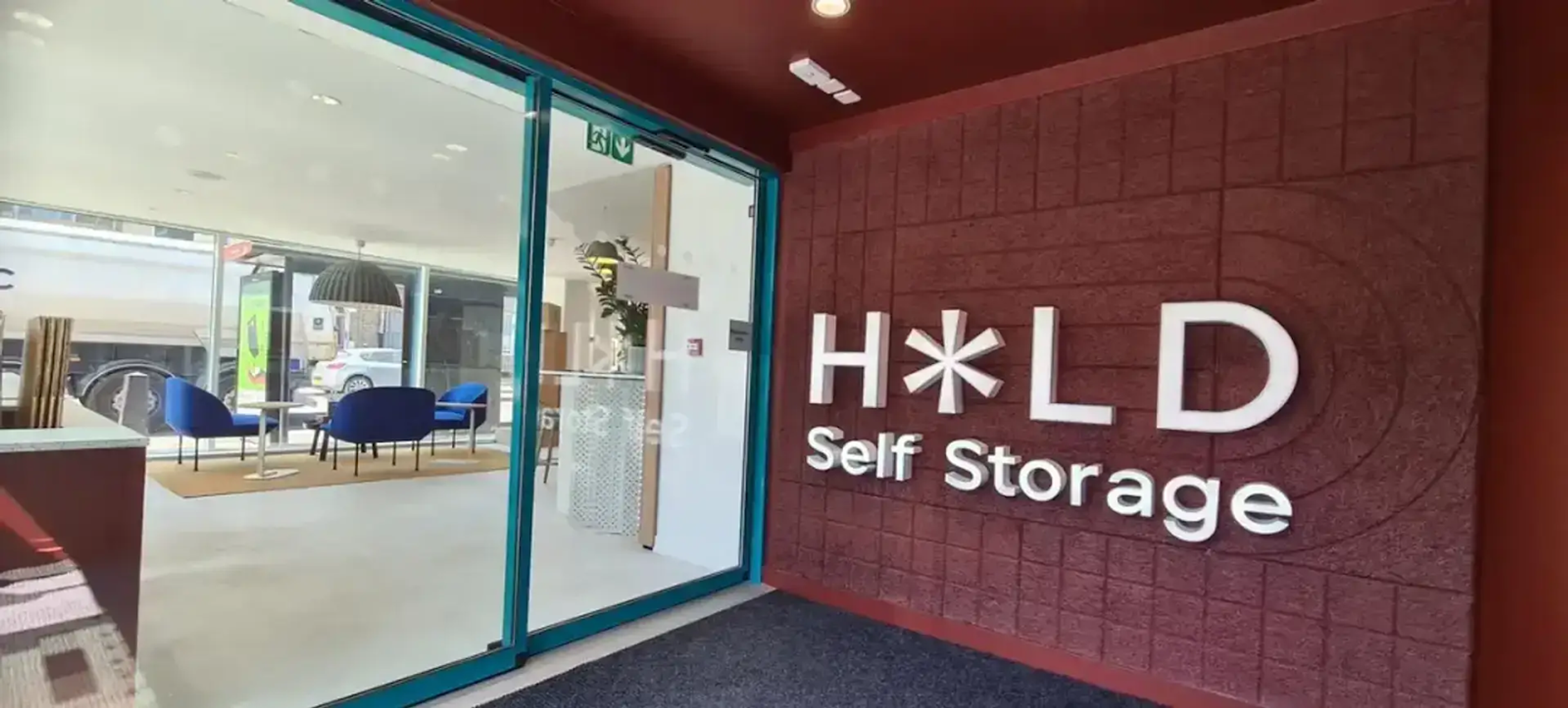When you’re moving house, downsizing, or simply needing some extra space for your belongings, a self storage unit can be a practical solution. But before you make any decisions, it’s crucial to understand the self storage prices and furniture storage costs.
These expenses can vary widely depending on factors such as unit size, location, duration, and any extra services like climate control or removals service.
In this guide for finding the perfect storage space, we’ll break down the different costs involved, what you can expect to pay in various regions, and how to make the most of your money when renting a storage unit.
What affects the cost of storing furniture?
The first question most people have when thinking about storage is: how to store furniture efficiently? The reality is that it depends on a variety of factors. By knowing what influences self storage prices, you’ll have a clearer understanding of what to expect and how to budget accordingly.
Unit size
The size of the unit you choose is one of the biggest factors in determining self storage prices. Storage units are usually measured in square foot or sq ft, and bigger units are naturally more expensive. However, choosing a unit that is too small can lead to issues if your items don’t fit properly.
Location
The cost of storage will vary significantly based on the storage location. If you’re storing furniture in a more expensive urban area like central London, expect to pay higher storage prices. In contrast, rural or suburban areas offer more affordable rates. For example, storage companies in the south east may charge more than those in less densely populated regions.
Duration of rental
How long you need to store your items can influence the overall price. Short-term rentals tend to have higher monthly rates, while long term storage may come with discounts. However, keep in mind that some storage facilities have a minimum rental period, which could be anywhere from one month to several months.
Climate control
Climate controlled units can increase storage costs but are worth considering if you have sensitive items. For instance, wood and leather furniture, electronics, and antiques are vulnerable to damage from extreme temperatures and humidity.
While climate-controlled storage comes with a higher self storage cost, it protects your items from potential deterioration.
Security measures
Ensuring the safety of your belongings is essential, especially when storing valuable items. Many storage facilities offer various security features, such as CCTV, access control systems, and on-site security personnel. These added layers of protection can increase your storage price, but they provide peace of mind, especially in high-crime areas.
Removals service
Moving large pieces of furniture into a storage unit can be difficult. Some storage providers offer a removals service, which can make your life easier but will add to your storage costs. Whether you choose to hire movers or move items yourself, it’s a good idea to factor moving costs into your overall budget.
Storage unit sizes and prices
Determining the right storage unit size for your needs is crucial to avoid overpaying for unnecessary space. Storage units come in a variety of sizes, each suitable for different purposes. Here’s a breakdown of common unit sizes and what they’re typically used for:
25 sq ft
This size is ideal for storing small items like boxes, small tables, or chairs. It’s perfect for people who just need to store a few household items or personal belongings. Prices range from £20 to £40 per month.
50 sq ft
A 50 sq ft unit can fit the contents of a one-bedroom flat, including larger furniture pieces like beds, dressers, and sofas. This size is great for those moving house or storing furniture during renovations. Expect to pay £50 to £100 per month.
100 sq ft
For people needing to store the contents of a two-bedroom home, a 100 sq ft unit is usually sufficient. You can store furniture, appliances, and plenty of boxes. Storage costs for this size range between £100 and £150 per month.
200 sq ft
Large families or businesses often need 200 sq ft units to store everything from multiple rooms. This size can accommodate the contents of a large home, including bulky items like pianos or multiple mattresses. Monthly costs typically fall between £200 and £250, depending on the location and storage facility.
Self storage unit prices tend to be higher in urban areas. For example, in central London, a 50 sq ft unit could cost upwards of £100 per month, while the same unit in a smaller town might only cost £50.
If you’re unsure of how much space you need, some storage facility offer online calculators to help estimate the storage unit size based on the number and type of items you need to store. This can help you avoid overspending on a unit that’s too big.
Climate control and security: is it worth the cost?
When considering furniture storage options, it’s important to weigh the value of additional features like climate control and enhanced security.
Climate control
As mentioned earlier, a climate controlled unit is a great option for those storing valuable or sensitive items. But how much extra will it cost you?
Cost of climate control
On average, climate controlled units cost 10-50% more than standard units. For example, if a standard unit costs £100 per month, expect to pay between £110 and £150 for the same size unit with climate control.
When you need it
If you’re storing items like wooden furniture, leather chairs, artwork, or electronics, the benefits of climate control far outweigh the cost. Without it, your items may warp, crack, or malfunction due to temperature fluctuations or humidity.
Security features
Secure storage
Most storage facilities offer some level of security, but higher-end facilities might include 24/7 surveillance, gated access, and individual alarms for each unit. These features increase your storage cost but can protect you from theft or vandalism.
Standard vs. premium security
While most storage facilities have basic security measures in place, higher-end options with premium security can cost £10-£30 more per month than units without those features. If you’re storing expensive or sentimental items, this could be worth the additional cost.
Although these features will raise your overall storage price, they could save you money in the long run by preventing damage or loss.
Other storage costs to consider
In addition to the cost of renting the actual storage unit, there are several other fees and expenses to consider when calculating how much to store your furniture:
Packing materials
You’ll need to invest in packing materials such as boxes, tape, and bubble wrap to protect your items. Some storage facilities offer packaging supplies on-site, but these may come at a premium. Budget between £20 and £100 for packing materials depending on how much you need to store.
Insurance
Many self storage providers require you to have insurance for the contents of your unit, particularly if you’re using a high-value unit like a climate controlled unit. Insurance costs vary depending on the replacement value of your items, but you can expect to pay an additional £10-£30 per month.
Access fees
While some self storage facilities offer 24/7 access to your unit, others may charge for access outside regular hours. These fees can range from £5 to £20 depending on the storage facility.
Removal service
If you don’t want to move your items yourself, some self storage providers offer a removals service for an additional fee. The cost for this service can range from £50 to £200 depending on the amount of furniture and the distance to your storage facility.
Hidden fees
Be sure to read the fine print and check for any hidden fees. Some companies charge administrative fees, late payment fees, or extra costs for using certain services like power outlets or moving equipment. These fees can add up quickly, so always ask for a full breakdown of costs before signing any contracts.
Regional cost variations
Self storage prices vary not only by size and services but also by region. Here's a look at how storage cost can change depending on where you're renting:
London and the south east
As one of the most expensive areas for storage, prices in London are often at the higher end of the scale. For instance, a 50 sq ft self storage unit in central London can cost up to £150 per month, while a 200 sq ft unit may be priced at £400 or more.
Midlands and the north
In these regions, self storage price tends to be more affordable. A 50 sq ft unit might cost around £60-£90, while a 200 sq ft unit could be rented for £200-£250.
Scotland and Wales
Similar to the north of England, prices in Scotland and Wales are generally lower than in the south. However, remote areas might have fewer self storage options, which could limit your choices and increase storage prices.
Keep in mind that average storage costs can fluctuate depending on local demand, the economy, and available storage facilities in the area.
How to save money on furniture storage
Storing furniture doesn’t have to break the bank. Here are some practical ways to reduce your self storage costs:
Downsize your belongings

Before renting a unit, consider whether you really need to store everything. Selling or donating unwanted furniture can reduce the size of the unit you’ll need, saving you money in the long run.
Choose the right self storage provider
Compare prices across different storage companies to find the most affordable option. Some providers may offer discounts for first-time customers or for longer-term rentals.
Avoid hidden fees
Make sure to ask your self storage provider about any additional charges or fees that might not be obvious upfront. These can include late payment fees, admin charges, and fees for accessing your unit outside of regular hours.
Use efficient packing methods
Properly packing your items can help you make the most of your self storage unit size. Stack boxes to maximise vertical space, and use protective materials like bubble wrap and blankets to protect delicate furniture.
Take advantage of discounts
A storage company may offer promotions or discounts, especially for new customers or those renting for longer periods. Don’t be afraid to ask about offers that can help you save.
Tips for packing and protecting your furniture
Ensuring that your furniture is well-protected during storage is just as important as finding the right self storage space. Proper packing and protection will not only save you money by minimising damage but also ensure your items remain in good condition when you retrieve them. Here are some tips to help you get the most out of your furniture storage options.
Disassemble large items
Take apart larger pieces of furniture such as beds, tables, and wardrobes before placing them in self storage. This will save valuable storage space and reduce the risk of breakage during transport. Ensure all screws, bolts, and small parts are packed in clearly labelled bags and kept with the furniture.
Use protective covers
Dust, dirt, and moisture are your furniture's biggest enemies when stored for long periods. Wrap items like sofas, chairs, and mattresses in bubble wrap, plastic sheeting, or furniture blankets to protect them from damage. Avoid using plastic directly on furniture, as it can trap moisture, which may lead to mould or mildew over time.

Stack strategically
When packing your storage unit, place heavier items like boxes and furniture frames on the bottom, and lighter, more fragile items on top. This ensures that delicate items won’t be crushed under the weight of bulkier belongings. Use the vertical space in your self storage space efficiently by stacking to the ceiling.
Leave space for air circulation
Even if your unit isn’t climate controlled, it's a good idea to leave gaps between items to promote airflow. This will prevent moisture build-up, which can lead to warping or mildew on wooden furniture and other household items.
Use pallets to elevate items
Placing your furniture on pallets ensures that air circulates under your items and protects them from potential water damage, especially if your self storage unit is located in an area prone to dampness or flooding.
Label everything
Clearly label all boxes with their contents and room of origin, especially if you plan on using long term storage. This will make it easier to locate specific items when you eventually need them without unpacking the entire unit.
Check insurance coverage
While most storage companies offer basic insurance options, it’s essential to review the replacement value of your furniture and ensure that you're fully covered in the event of damage or theft. You can either purchase additional insurance through your self storage provider or arrange it through your home insurance policy.
Packing your items properly and following these simple storage tips can help you avoid unnecessary additional costs and prolong the life of your furniture, especially when using a climate controlled unit or a secure self storage facility. Taking the time to pack efficiently will also help maximise your unit size, giving you more room to store other personal belongings or household items.
Conclusion
Storing furniture in a self storage unit can be a convenient solution during a move or when decluttering your home. Furniture storage costs depends on factors like unit size, location, additional services like climate control, and security measures.
By comparing storage providers, understanding self storage costs, and taking advantage of savings opportunities, you can find a solution that fits your needs and budget.
Whether you're looking for a cost effective way to store your belongings temporarily or need long term storage for high-value furniture, knowing the factors that influence self storage prices will help you make the best decision for your situation.
HOLD Self Storage has all your self storage needs!
Whatever your storage need, HOLD Self Storage is here to help. With a friendly team, advanced security measures, a wide range of storage services and climate-secure units, our Kings Cross facility has everything you need to keep your belongings safe and sound.

Contact us today for a free quote or to learn more about our self storage service!
Frequently Asked Questions (FAQs)
How much do storage units cost per square foot?
Storage unit prices can vary, but on average, you’ll pay £2-£3 per square foot for a standard unit. Climate control or additional security features can increase this cost.
What is the minimum rental period for a storage unit?
Most storage providers require a minimum rental period of one month, though some may offer weekly rentals or discounts for longer commitments.
Can I rent a storage unit if I’m only storing a few items?
Yes, many storage facilities offer smaller units, such as 25 sq ft options, perfect for a few boxes or smaller furniture pieces. These are ideal for short-term storage or when you don’t need to store large amounts of furniture.
How secure are storage units?
Most storage facilities have standard security measures in place, including CCTV cameras, locked gates, and alarms. Some offer higher levels of security, such as individual unit alarms and 24/7 surveillance.
Can I access my storage unit at any time?
Many facilities offer 24/7 access, but others may restrict access to regular business hours. Some facilities charge extra for after-hours access, so be sure to ask

